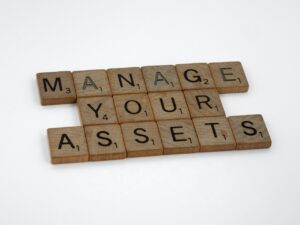
Share consolidation-what is it?
Written by R. A. Stewart
One term you do not hear very often is share consolidation. It is a term seldom used because not many companies have used this as an option. This article sheds more light on the term. Hopefully I have explained it well enough in terms that even the novice investor will understand.
Share market price increase may be misleading
If you are a casual share market follower and notice a particular company’s share price has jumped up in price suddenly and you are thinking, “What have I missed out on,” then it all may not be as it seems.
Let me explain.
Years ago around 2001 I think, I owned some shares in Air New Zealand. The company almost went broke. The company almost went bust. It was the government who bailed them out. The share price went from about $1.95 per share down to 14 cents per share. The share price increased a little but still only a fraction of what I bought them for.
What the company then did was increase the share price but you owned fewer shares.
This is how it works:
For the sake of simple mathematics, let’s assume company xyz’s share price is 20 cents per share. xyz then decides to increase the price of the share to $1.
If an investor owned 1000 shares at 20 cents, they will now own 200 shares worth $1 each.
Unless you are a follower of the share market you may be unaware of this actually happening.
I don’t know how often this situation occurs but it may pay to do your homework if a particular share increases dramatically for no apparent reason.
What I have just tried to explain is known as reverse stock split or share consolidation.
This makes the company more attractive to investors. They may hold fewer shares but the real value of the total shares in that particular company is the same. It is just that now they hold proportionately fewer shares.
Share consolidation can be viewed negatively by investors as a company in trouble and this could impact the share price.
One reason why a company may choose share consolidation is that if it’s shares fall below $0.50 for 30 consecutive days then it will be de-listed. This is applicable to the New York Stock Exchange and there may be different rules for other countries.
Another benefit of share consolidation is that it will mean fewer share certificates will need to be printed which will reduce costs.
It is always a good idea to check the history of a company’s share price before you invest in it. If it has been the subject of a share consolidation it may show up or at least give some indication that it has. Only a small percentage of companies will have been the subject of share consolidation, therefore, you are unlikely to come across this situation.
ABOUT THIS ARTICLE
You may use this article as content for your ebook or website/blog. The information may not be applicable to your personal circumstances therefore discretion is advised.
www.robertastewart.com
#share consolidation
#shares
#mutualfunds
#share market
Start investing on a shoestring
Sharesies makes it possible for anyone to get into buying and selling shares. It is an online share market platform where you have the option of purchasing shares in individual companies or in various funds (managed/mutual funds). You can even start with $5. This is a no brainer because it gives investors young and not so young the chance to improve their financial literacy. There is certainly no substitute for experience when it comes to learning and this is applicable to everything else, not just investing.
Join sharesies here: https://sharesies.nz/r/377DFM
Disclaimer: I may receive a small commission if you join sharesies.



















